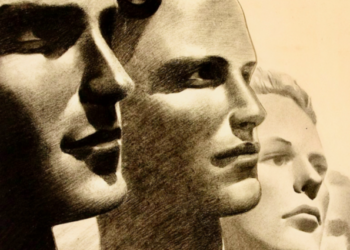This is the final part in the series. You can read the first three parts here.
IN HIS essay On Fairy-Stories, J R R Tolkien coined a term to describe a feature that distinguishes the best fairy-tales: ‘eucatastrophe’.The eucatastrophe is that moment in a story when the hero makes a great escape, with events turning from despair to joy. For Tolkien, this is similar, but not identical, to a happy ending. It is not enough that things turn out well for the protagonist of the story. For one, the escape from danger must be consistent with the logic of the narrative. It can be no deus ex machina. Secondly, and more importantly, the turn must be morally fit to the story. The characters who experience a eucatastrophe must have dedicated themselves to a higher cause with the awareness that death, or some other immense loss, is a probable result of their actions. In other words, the eucatastrophe must follow a knowing and willing self-sacrifice. For Tolkien, the pre-eminent example of eucatastrophe is Christ’s death and resurrection. In The Hobbit and The Lord of the Rings there are many eucastastrophic moments, the rescue of Frodo and Sam from Mount Doom being the most memorable.
While John Huston lacked the religious faith of Tolkien, he was not averse to including an unquestionable example of eucatastrophe in The African Queen. Like the hobbits in The Lord of the Rings, Rose and Charlie have given up everything to achieve a noble goal. Lying on the deck of the trapped boat, they are proud of their efforts and express no regrets. Although they are heartbroken that their journey has come to an end, they accept that end without complaint. Indeed, Rose’s prayer in the marshes is a happy one. She begs God to have mercy on them and look kindly on their ‘acts of love’.
As with Frodo and Sam on Mount Doom, salvation comes from above. While Rosie and Charlie are sleeping, storm clouds rise far upstream. In images evocative of Noah’s flood, we see a torrential rainfall cause trees to topple and be swept away, animals to flee to safety, and the level of the river to rise suddenly. The impenetrable wall of papyrus that surrounded the African Queen subsides into the river. The boat stirs from its mooring and floats unencumbered into the lake. Charlie, noticing that the Queen is moving again, awakes. Overjoyed by their miraculous delivery, he shares the good news with a confused Rose. Still traumatised by their near destruction, she urges Charlie to fire up the engine and hasten to open water. Like Christ risen from the dead, Charlie and Rose emerge from the confined tomb of the marshes to the freedom of the lake, the expanse of the heavens full above their heads. The place that spelled their doom has been transformed, in the space of a night and by a power larger than themselves, into a sea of joy.
One could forgive Charlie and Rose if they ended their journey here. Surely their luck must run out some time. But Charlie and Rose do not look at it that way. They are serious about their mission and indeed have made it so far only because of their seriousness. When the Luise appears in the distance, cruising toward them, they know they have to act quickly. They take cover behind the reeds of the shore and watch the gunboat continue its patrol of the lake. Charlie sets to arming his craft with two projecting torpedoes, improvising detonators with a tube filled with nails and rifle cartridges. Having accomplished that task, they clean the Queen and tack a Union Jack to the mast so she will look her best in her final hour. They figure the Luise will return to the same spot at night, at which point they will use the cover of darkness to ram the German gunboat.
Whereas a storm saved them before, this time it ruins them. Charlie and Rose direct the African Queen at the Luise, but with winds howling and water pouring into the boat, they cannot keep a straight course. Before they can get close to the German gunboat, the Queen capsizes. As the two cling to the wreckage, a wave washes over them, sweeping away Rose into the darkness of the lake. Charlie shouts helplessly for his beloved. Once again, all appears lost for our heroes.
Yet John Huston has time for one final eucatastrophe, one even more fantastic than all the rest. It is daybreak and Charlie has been picked up by the crew of the Luise. The Germans accuse him of being a spy and threaten him with execution. Having lost the love of his life, Charlie could not care less. Yet his sorrow is short-lived. To his great joy, Rose is picked up by the Germans, who promptly condemn her beside him. Reunited, the couple are blissfully indifferent to their imminent hanging. They are happy to die together, a fate they expected so many times before. In a moment of inspiration, Charlie asks the captain to marry them. For the captain, this is a nonsensical request. For Rose, it is a beautiful gesture, a blessing of their relationship under the eyes of God, the Being who has protected them on their journey. The captain, more irritated than amused, consents. In one of the best lines of the movie, he perfunctorily declares them man and wife, substituting ‘you may kiss the bride’ with ‘proceed with the execution’.
Just as the nooses are fitted around their necks, an explosion rocks the boat. Smoke fills the screen and crew members run amok. A second explosion is heard and the crew are now abandoning the ship. In a turn of events that could only happen in a fairy-tale, the Luise has run into the wreckage of the Queen, triggering the torpedoes. As Charlie and Rose tread water, trying to make sense of what has happened, a piece of the boat floats past. On it is the name African Queen. Amazed, Charlie and Rose rejoice at their miraculous deliverance. Once again, having given up all hope, they and their mission are rescued at the last moment.
***
It would be easy to dismiss the ending of The African Queen as a preposterous appendix to an otherwise cohesive and even plausible story. What are the mathematical odds that a boat should stumble into an object smaller than a square foot in a lake thousands of square miles in surface area? In his biography of the director, Jeffrey Meyer writes that John Huston and his co-writers had struggled to come up with an ending that pleased the censors. Because the movie implied that Charlie and Rose had slept together, it would not be possible for them to have a happy ending, as was the case in the book. There Charlie and Rose are pardoned by the German captain, just before an English gunboat comes to their rescue. But Huston was opposed to a tragic ending. The idea that Charlie and Rose should perish conflicted with the comic and romantic tone of the film. In the end, Huston decided to have the heroes marry in order to be saved. James Agee, Huston’s co-writer, found this ending to be unsatisfactory. For Jeffrey Meyer, the movie’s ending constitutes a sudden shift from reality to fantasy.
Whatever Huston’s motivations, I would argue that the ending is entirely fitting. If the ending is fantastic, it is no less fantastic than anything that preceded it. And I mean that in the best way, the Tolkien way. When Charlie and Rose stand together with nooses around their necks, they have already achieved a happy ending. Because of their love for each other, and their commitment to a higher purpose, they have already participated in an experience that defies ordinary explanation. Both have risen from misery and ennui into a joyful life of purpose. Both have achieved levels of excellence and accomplishment they never thought possible. Greatest of all, they no longer live in fear of death. Their incredible deliverance from execution is consonant with this miraculous transformation. It displays the overflowing abundance of God’s goodness, which He showers on those who give themselves up for others. It displays the victory of love over reason, not a love that destroys reason but a love that extends it. Earlier in the movie, Charlie had laughed at Rose’s bold plans: ‘Lady, you got ten absurd ideas for my one.’ Now these same ideas have been realised, all on account of Charlie’s willingness to submit to self-sacrificial love. At the end of the movie, who are we the viewers to dismiss as unrealistic the Luise’s fortuitous sinking? Such a conclusion goes against the central idea of the film: that what is impossible for man is possible for God.
As far as I know, John Huston was not a religious man. Yet it is quite clear he took religion very seriously, at least in his pictures. Films like Heaven Knows, Mr. Allison (1957), Wise Blood (1979), The Dead (1987),and not least, The Bible (1966),all present religious figures with great sympathy. I think part of this attitude comes from Huston’s belief that man consistently overestimates his own knowledge and ability. A common occurrence in Huston’s movies is the frustration of man’s grandiose plans by things outside his control. However confident man is, however wise or virtuous, in the end he knows very little. Consider the ending of The Treasure of the Sierra Madre (1948).Three prospectors have spent ten months making a fortune from gold mining in the remote mountains of Mexico. However, because of their greed, mistrust, and cruelty, they are unable to carry their treasure back to civilisation. One of the three steals from the others, only to be met by bandits, who kill him and steal his mules. The other two survive and catch up with the mules, which had been secretly laden with their gold. Instead of being reunited with their treasure, they witness in horror as a dust storm blows away the bags and their precious dust. The two can do nothing but laugh at the absurdity of the situation. ‘It’s a great joke played on us by the Lord or fate or nature or whatever you prefer,’ laughs the old prospector. ‘But whoever or whatever it played it certainly had a sense of humor!’
The African Queen likewise ends with a joke. Earlier in the movie, Charlie had tried to drink away his problems. With Rose looking on in sheer revulsion, he sings ‘The Bold Fisherman’, which offends his shipmate in both its impropriety and unmusicality. At the end of the movie, when they have defied the odds and destroyed the German gunboat, Charlie reprises the song. But this time, as they swim towards the shore, Rose joins in. Whereas before the song conveyed the laughter of despair and diversion, this time it conveys wonder and joy. Before Charlie was intoxicated by gin; now they are intoxicated by God’s mercy. In both instances man appears a strange and somewhat pathetic creature. But by sacrificing himself and co-operating with God, he is capable of great things. For Huston, God ‘or Fate or Nature’ laughs last. Happily He allows man to participate in that laugh.










